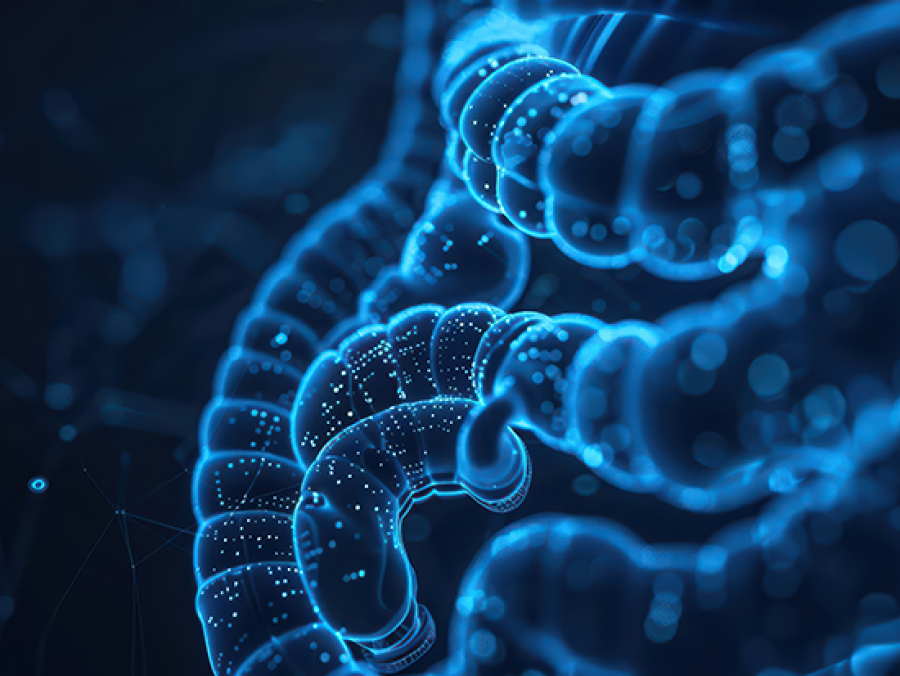|
Professor of Medicine |

Dr. Smith earned his B.A. from the University of California at Berkeley in pre-medical sciences and anthropology and his M.D. from the University of Rochester, N.Y. After residency in internal medicine at Vanderbilt and a fellowship in gastroenterology at the University of Colorado, which included training in clinical parasitology at the University of Natal in Durban, S. Africa, he did a postdoctoral fellowship in parasite immunology in the Laboratory of Parasitic Diseases, NIAID, NIH and then joined the Laboratory of Cellular Immunology, NIDCR, NIH, where he was a Senior Investigator until joining the UAB Department of Medicine in 1993. Additional research training includes a fellowship year at the Cancer Research Institute, Vienna, Austria and a sabbatical at the Institute Cochin for Molecular Genetics, Paris. Dr. Smith has a secondary appointment in the Department of Microbiology and is the Mary J. Bradford Professor in Gastroenterology.
Dr. Smith’s laboratory focuses on the mucosal immune response to enteric pathogens or pathogens acquired via mucosal surfaces, including HIV-1, H. pyloriand cytomegalovirus (CMV). His studies on mucosal HIV-1 infection seek to elucidate the mechanism of the selective entry and transfer of macrophage-tropic (R5) HIV-1 by intestinal epithelial cells. Having shown that R5 HIV-1 infects intestinal lymphocytes, not macrophages, his group is investigating the mechanism by which intestinal macrophages are downregulated for CCR5 expression and HIV-1 replication. H. pylori studies focus on the mechanism by which this non-invasive bacterium induces gastric inflammation and ulceration. Studies of CMV address the mechanism of CMV-induced gastrointestinal inflammation. An additional area of investigation is the immunobiology of intestinal macrophages, in particular, the mechanism by which intestinal macrophages develop inflammatory anergy but retain avid phagocytic and killing function.
Selected Publications
- Smith, P.D., Ohura K, Masur H, Lane HC, Fauci AS and Wahl SM. Monocyte function in the acquired immune deficiency syndrome: defective chemotaxis. J. Clin. Invest. 74:2121-2128, 1984.
- Mai, U.E.H., Perez-Perez, G.I., Wahl, L.M., Wahl, S.M., Blaser, M.J. and Smith, P.D. Soluble surface proteins from Helicobacter pylori activate monocytes/macrophages by a lipopolysaccharide-independent mechanism. J. Clin. Invest. 87:894-900, 1991.
- Mai, U.E.H., Perez-Perez, G.I., Allen, J.B., Wahl, S.M., Blaser, M.J. and Smith, P.D. Surface proteins from Helicobacter pylori exhibit chemotactic activity for human leukocytes and are present in gastric mucosa. J. Exp. Med. 175: 517-525, 1992.
- Smith, P.D., Saini, S.S., Raffeld, M., Manischewitz, J.F. and Wahl, S.M. Cytomegalovirus induces expression of tumor necrosis factor by human monocytes and mucosal macrophages. J. Clin. Invest.90:1642-1648, 1992.
- Smith, P.D., Fox, C.H., Masur, H., Winter, H.S. and Alling, D.W. Quantitative analysis of mononuclear cells expressing HIV-1 RNA in esophageal mucosa. J. Exp. Med. 180:1541-1546, 1994.
- Smith, P.D., Smythies, L.E., Mosteller-Barnum, M., Sibley, D., Russell, M., Merger, M., Sellers, M.T., Graham, M.F., Shimada, T. and Kubagawa, H. Intestinal macrophages lack CD14 and CD89 and consequently are down-regulated for LPS- and IgA-mediated activities. J. Immunol. 167:2651-2656, 2001.
- Meng, G., Wu, X., Wei, X., Sellers, M.T., Decker, J.M., Moldoveanu, Z., Kappes, J.C., Mestecky, J., Shaw, G.M. and Smith, P.D. Intestinal epithelial cells express CCR5 and selectively transfer R5 HIV-1 to CCR5+ cells. Nature Med. 8:150-156, 2002.
- Smythies, L.E., Sellers, M., Clements, R.H., Mosteller-Barnum, M., Meng, G., Benjamin, W.H., Orenstein, J.M. and Smith, P.D. Human intestinal macrophages display profound inflammatory anergy despite avid phagocytic and bacteriocidal activity. J. Clin. Invest. 115:66-75, 2005.
- Shen, R., Meng, G., Ochsenbauer C., Clapham, P.R., Grams, J., Novak, L., Kappes, J.C., Smythies, L.E. and Smith, P.D. Stromal down-regulation of macrophage CD4/CCR5 expression and NF-kB activation mediates HIV-1 non-permissiveness in intestinal macrophages. PLoS Pathog. 7(5):e1002060, 2011.
- Smith, P.D., Smythies, L.E., Shen. R., Greenwell-Wiild, T., Gliozzi, M. and Wahl, S.M. Intestinal macropahges and response to microbial encroachment. Muc. Immunol. 4:31-42, 2011.





